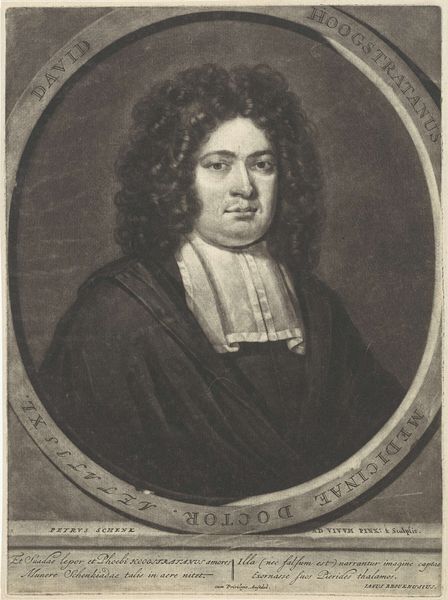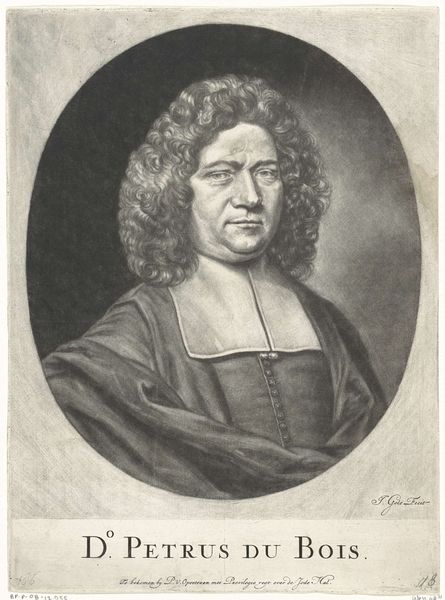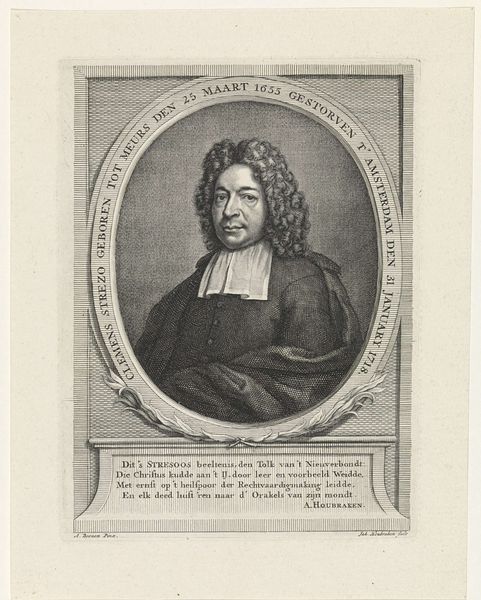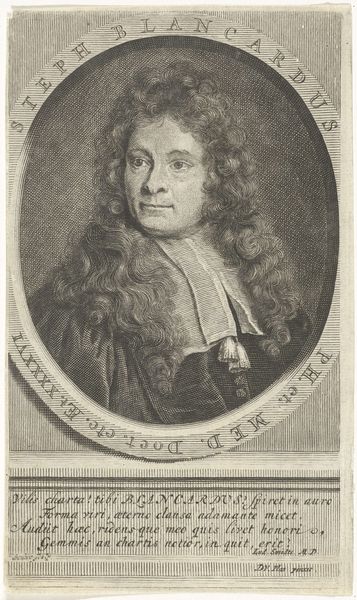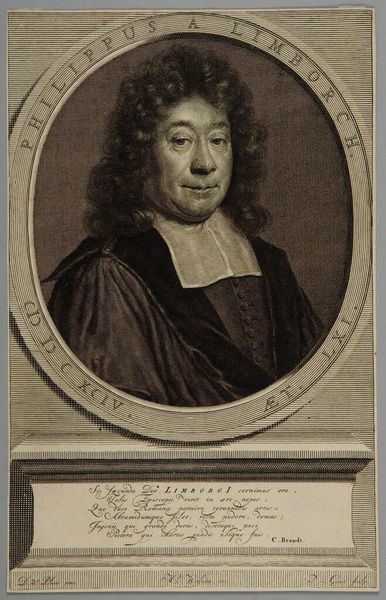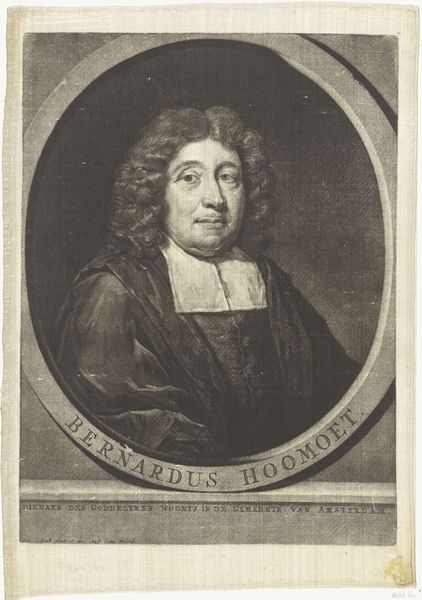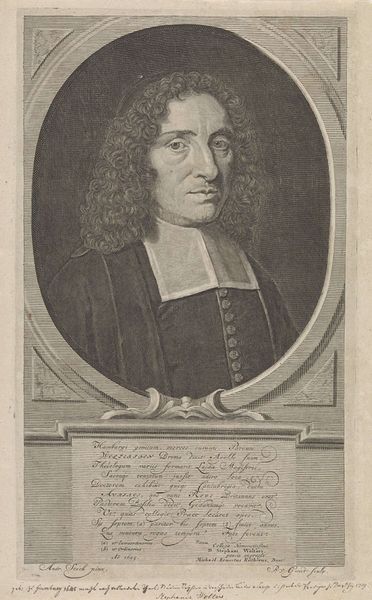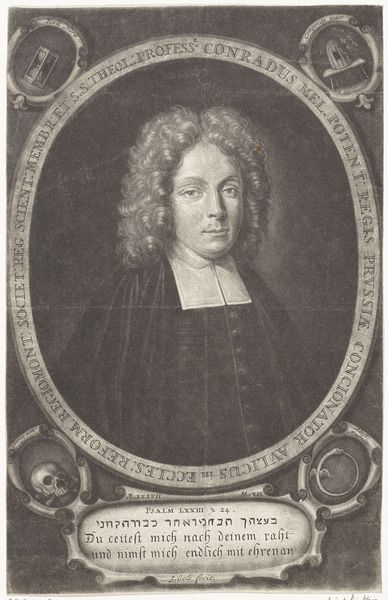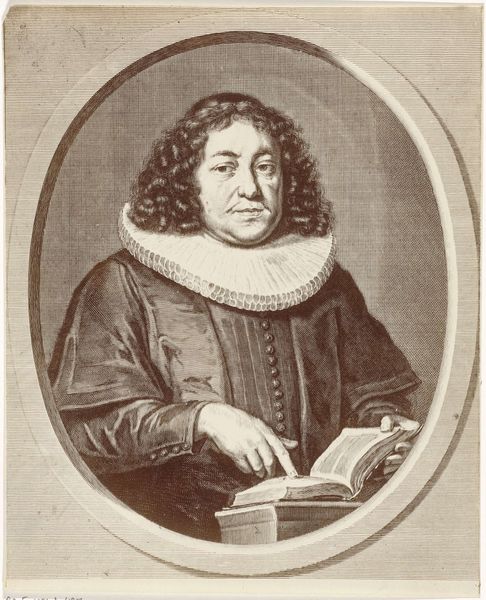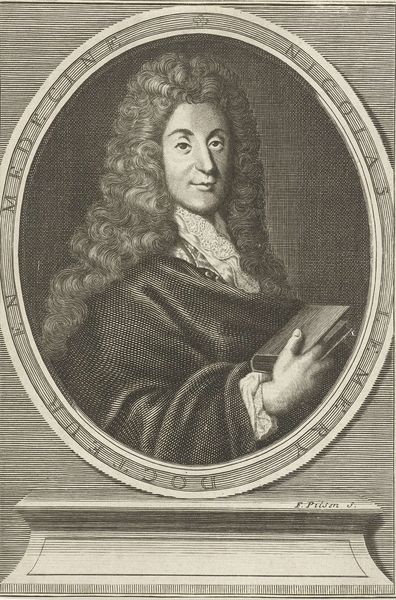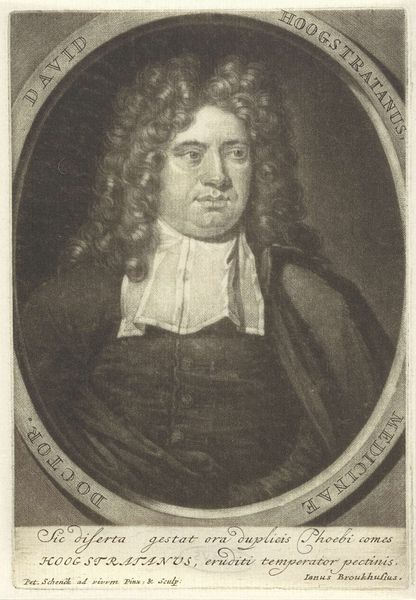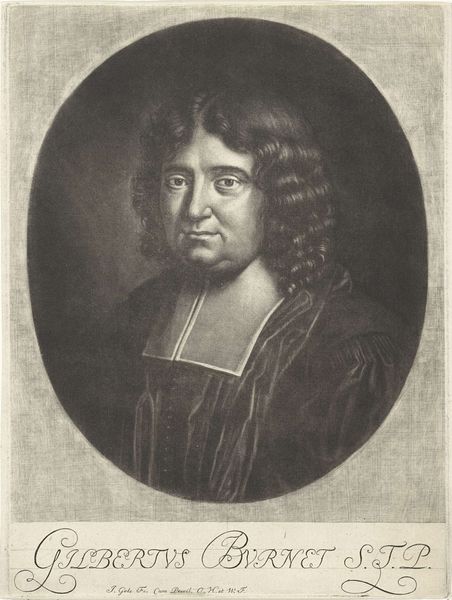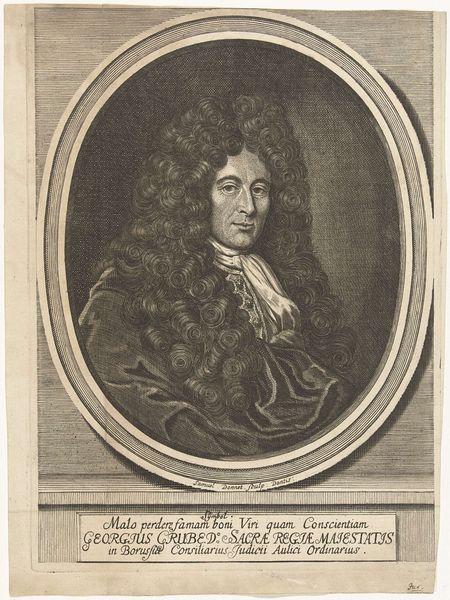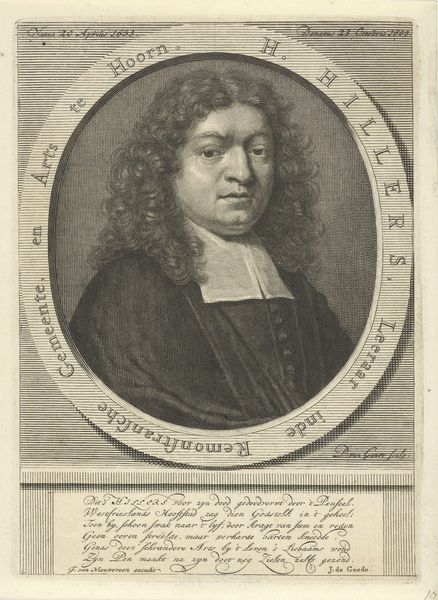
print, engraving
#
portrait
#
baroque
# print
#
engraving
Dimensions: height 287 mm, width 211 mm
Copyright: Rijks Museum: Open Domain
This portrait of Adriaan van Oostrum was created by an anonymous artist using the intaglio printmaking technique known as mezzotint. This process involves roughening the entire copper plate with a tool called a rocker, creating a surface that, if printed, would produce a solid black area. The printmaker then smooths certain areas of the plate with a burnisher and scraper, creating lighter tones in the image. The resulting print has a velvety texture and rich tonal range, evident in the soft gradations of light and shadow that define van Oostrum's features and clothing. The mezzotint technique allowed for the reproduction of fine details, such as the intricate curls of the sitter’s wig, and the delicate lines of the inscription below the portrait. Mezzotint was a popular method for reproducing portraits in the 17th and 18th centuries, as it allowed for relatively large editions to be printed. The production of prints like these, involved the labor of skilled artisans, contributing to a growing print market and wider dissemination of images. By considering the material and the making, we can gain a deeper appreciation for its cultural significance.
Comments
No comments
Be the first to comment and join the conversation on the ultimate creative platform.
